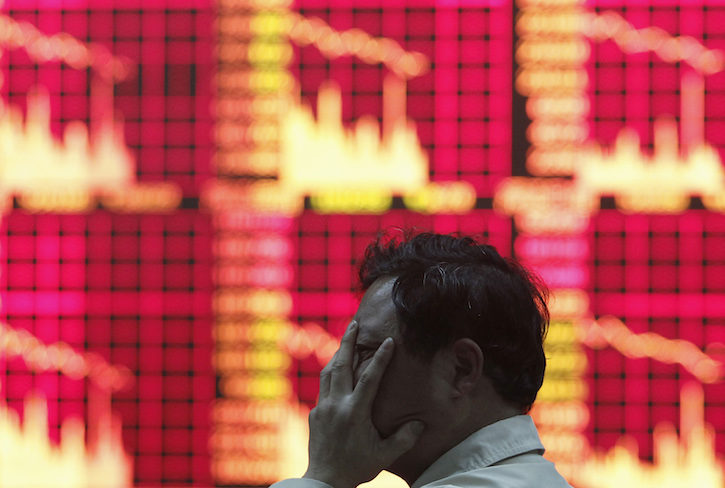
China’s government has provided an implicit guarantee against insolvency, resulting in investors and companies with little aversion to risk, argues Tsinghua University professor Zhu Ning in a new Paulson Policy Memorandum. From the real estate sector to the stock market, Chinese investors have come to rely on government entities to guarantee returns or prevent significant losses. This mentality has led investors to take more risks than they fully understand, with long-term ramifications for the stability of the Chinese economy. Zhu explains what’s at stake, and how Beijing can tackle the moral hazard problem:
- Official economic growth targets have led central and local governments to support overly optimistic investors. With GDP targets still a major factor in cadre evaluation, officials are incentivized to find ways to boost growth rates, says Zhu. Driving growth through borrowed money (often from state-owned policy banks) has become the easiest way for local governments to fulfill official targets.
- Excessive debt-financed investment and government intervention to prop up bad investments have led to overcapacity and bubbles in China’s economy. Local governments often step in to support unhappy investors, such as real estate buyers who suffer large paper losses. The China Securities Regulatory Commission (CSRC) has intervened to prop up the stock market. The result: over-reliance on implicit government guarantees that can lead to risky investment decisions and create a bubble-like phenomenon.
- To address these issues, the Chinese government must take measures to allow the market to rebalance the economy, Zhu argues. First, it should withdraw the support embedded within implicit guarantees. Beyond that, Beijing needs to gradually liberalize its capital market account, allowing money to flow freely across borders to avoid the asset bubbles that result from Chinese investors chasing only domestic opportunities.
- Security markets need further reform to reduce financial risk, Zhu writes. The government should encourage the development of the mortgage-backed security and asset-backed security markets as a way to spread the risk of a property shock to a broader group of investors. Zhu recommends stock market reforms, including legalization of short selling as a way to ensure that both positive and negative news will be reflected in share prices. Finally, the CSRC should clarify that market development is a more important goal than market stability.
- Ultimately, China should enable bankruptcies in order to signal it will no longer guarantee risky investments. While some have cited recent SOE corporate bond defaults and debt-for-equity swap programs as positive signs, most Chinese companies and local governments are still financially undisciplined. The only credible way to convince the market that debtors will not be bailed out is to allow defaults and bankruptcies to occur, Zhu writes. As Steve Jobs once remarked, “death is very likely the single best invention of life.”


